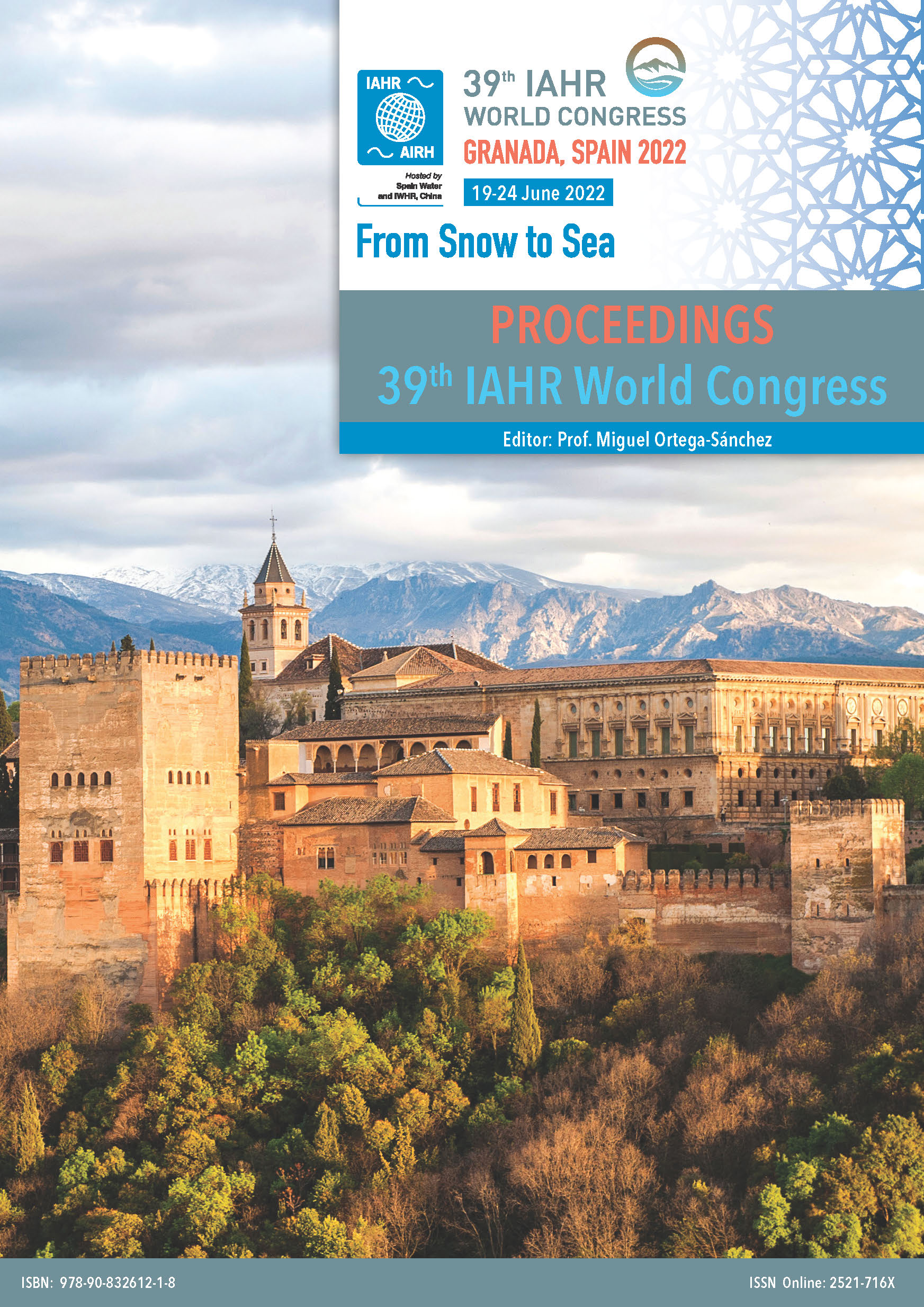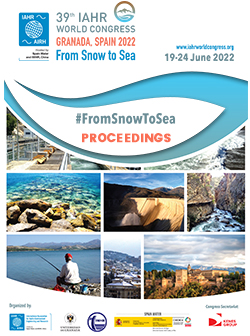06-06-001-127 | Insights into fish-anthropogenic pressures relationships using machine learning techniques: the case of castilla-la mancha (Spain)
Carlotta Valerio, Graciela Gómez Nicola, Rocío Aránzazu Baquero Noriega, Alberto Garrido 4, Lucia De Stefano |
06-06-002-405 | Pattern analysis of meteorological field causing heavy rainfall disaster in kyushu and chugoku region japan using self organizing map
Koji Asai, Koji Nishiyama, Hajime Shirozu |
06-06-003-697 | Physics-informed machine learning for pollutant transport modelling in surface water
Daan Bertels, Patrick Willems |
06-06-004-902 | Coupling support vector machine and physically-based hydrological modeling for reducing the computational time in climate change studies.
Florentin Hofmeister, Alice Spadina, Gabriele Chiogna |
06-06-005-903 | Application of machine learning techniques to optimize water disinfection through advanced oxidation processes
Sonia Guerra-Rodríguez, David J. Vicente, Jorge Rodríguez-Chueca, Alejandro Pérez-Aja, Encarnación Rodríguez, Fernando Salazar |
06-06-006-926 | A reliable monitoring approach of floods in small and high slope watersheds
Goncalo Jesus, Anabela Oliveira, Joao Rogeiro, Rui Rodrigues, Joao Fernandes |
06-06-007-952 | Assessment of random forest to predict sediment first flush in urban watersheds
Cosimo Russo, Alberto Castro, Angela Gorgoglione |
06-06-008-1003 | Obtaining Riparian Vegetation Characteristics from UAV Optical Imagery 3D Point Cloud Data
Andre Araujo Fortes, Masakazu Hashimoto, Keiko Udo, Ken Ichikawa, Shosuke Sato |
06-06-009-1036 | A machine learning based method for fast estimation of damages due to failure of off-stream reservoirs
Nathalia Silva Cancino, Fernando Salazar, Marcos Sanz-Ramos, Ernest Bladé Institute FLUMEN and |
06-06-010-1040 | Model tree-based approaches for forecasting hydroclimatic variables at different temporal scales
Ramesh Teegavarapu, Alexis Schauer, Priyank Sharma |
06-06-011-1308 | Modelling flash floods in ungauged mountainous catchments in henan province, china: a machine learning approach for parameter regionalization
Sijia Hao, Qiang Ma, Philippe Gourbesville, Guomin Lyu, Wenchuan Wang, Changjun Liu |
06-06-012-1418 | Assessment of long-term heavy metal contamination in aquatic ecosystems using a combination of secondary data analysis techniques
Basmah Bushra, Leyla Bazneh, Lipika Deka, Paul Wood, Diganta Das |
06-06-013-1428 | Regional models based on multi-gene genetic programming for the simulation of monthly runoff series
Dario Pumo, Giuseppe Cipolla, Leonardo V. Noto |
06-06-014-1538 | Data-driven models for flooding forecasting in small watersheds
Sergio Zubelzu, Sara E. Matendo, Victor Galán |
06-06-015-1724 | Exploring the impact of coastal water quality parameters on chlorophyll-a near cyprus with the use of artificial neural networks
Ekaterini Hadjisolomou, Konstantinos Antoniadis, Ioannis Thasitis, Rana Abu-Alhaija associate, Herodotos Herodotou, Michalis Michaelides |
06-06-016-1774 | Assessment of the short-term streamflow forecasting using machine learning fed by deutscher wetterdienst icon climate forecasting model
Andrea Menapace, Daniele Dalla Torre, Ariele Zanfei, Pranav Dhawan, Michele Larcher, Maurizio Righetti |
06-06-017-1804 | Machine learning approaches for practical water resources management: a real and consistent tool or an appealing distraction?
Claudio Mineo, Stefania Passaretti, Eleonora Boscariol, Anna Varriale |


